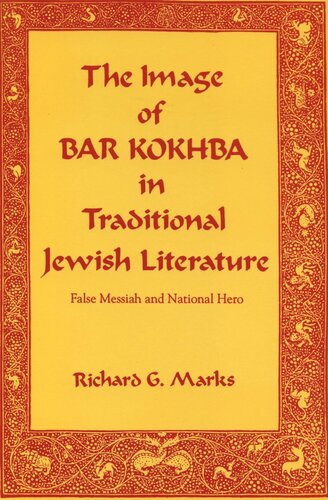

Most ebook files are in PDF format, so you can easily read them using various software such as Foxit Reader or directly on the Google Chrome browser.
Some ebook files are released by publishers in other formats such as .awz, .mobi, .epub, .fb2, etc. You may need to install specific software to read these formats on mobile/PC, such as Calibre.
Please read the tutorial at this link: https://ebookbell.com/faq
We offer FREE conversion to the popular formats you request; however, this may take some time. Therefore, right after payment, please email us, and we will try to provide the service as quickly as possible.
For some exceptional file formats or broken links (if any), please refrain from opening any disputes. Instead, email us first, and we will try to assist within a maximum of 6 hours.
EbookBell Team

4.8
74 reviewsBar Kokhba led the Jewish rebellion against Rome in 132–135 A.D., which resulted in massive destruction and dislocation of the Jewish populace of Judea. In early rabbinic literature, Bar Kokhba was remembered in two ways: as an imposter claiming to be the Messiah and as a glorious military leader whose successes led Rabbi Akiba, one of the great rabbinic authorities of Jewish tradition, to acclaim him the Messiah. These two earliest images formed the core of most later perceptions of Bar Kokhba, so that he became the prototypical false messiah and the paradigmatic rebel of Jewish history.
The Image of Bar Kokhba in Traditional Jewish Literature is a history of the perceptions that later Jewish writers living in the fourth through seventeenth centuries formed of this legendary hero-villain whose actions, in their eyes, had caused enormous suffering and disappointed messianic hopes.
Richard Marks examines each writer's account individually and in the context of its period, exploring particularly political and religious implications. He builds a history of images and looks at larger patterns, such as the desacralizing of traditional imagery. His findings raise timely political questions about Bar Kokhba's image among Jews today.